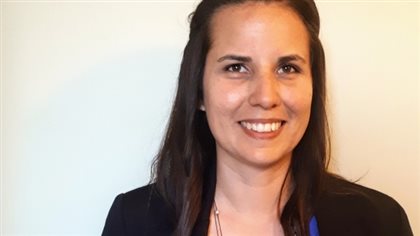The the Mohawk language, Kanien’keha, will be a course offered this fall at the University of Waterloo.
But prospective students need to know it’s not like any language course they’ve ever been in before.”
“The Mohawk language is so different from European languages that you really have to teach it in a different way,” instructor Nicole Bilodeau told CBC News.

Bilodeau will teach the first course in Kanien’kéha in much the same way she learned the language, with an immersion model in which students speak it and perform oral comprehension tests.
It won’t be easy, but she said if students bring an open mind, they’ll succeed.
“Anyone can learn a language,” she said. “It really just takes an open mind and a willingness to challenge yourself and push yourself out of your comfort zone.”
It’s being offered through Renison University College, in collaboration with the Waterloo Aboriginal Education Centre at St. Paul’s University College, which is also at the University of Waterloo.
The academic dean at Renison, Kofi Campbell said the university decided to offer the course in an effort to respond to “Call to Action Number 16” from the Truth and Reconciliation Commision, challenging post-secondary institutions to offer degree and diploma courses in Indigenous languages.
“We chose to begin with Mohawk for a couple of reasons. First, because it is a language that is very much under threat,” Campbell said, noting there are only about 3,500 Mohawk speakers around the world and only one at Six Nations, southeast of Brantford.
“In terms of language preservation, we felt that this was a very good place to start,” he said.
The second reason is “because of our proximity and our connection to the Six Nations First Nation community,” he said.
“We’ve really always believed language acts as a bridge between cultures as a way of understanding a new culture,” Campbell said.
Already there’s been a great deal of interest in the language class, and Campbell said everyone will be accepted.
Consultations with Six Nations, people at the Waterloo Aboriginal Education Centre and other communities will be part of the course evaluations.
“We want to do something that’s going to be useful and that’s going to work for people,” Campbell said.
Bilodeau, who is Mohawk, took a two-year immersion course to learn the language. She now teaches it at night classes and part time in the community.







For reasons beyond our control, and for an undetermined period of time, our comment section is now closed. However, our social networks remain open to your contributions.